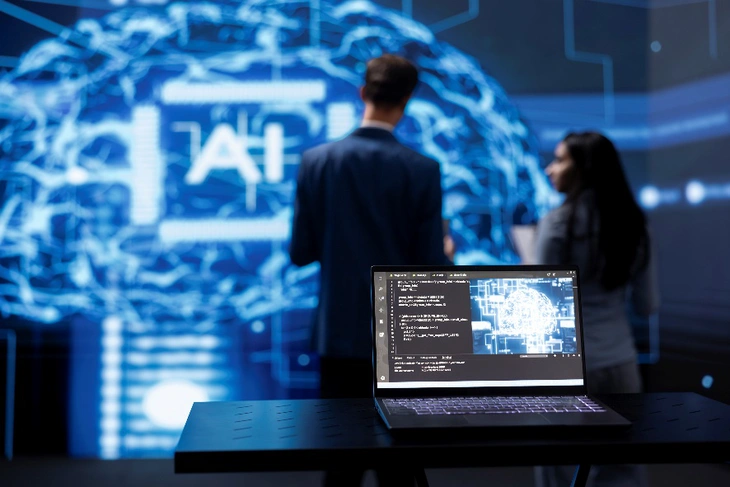
AI destroys many jobs, but also creates many new jobs - Photo: DC_Studio
Is AI a threat or an opportunity?
The era of artificial intelligence (AI) is reshaping every field, from the way we live, work to study. In that context, many parents and students cannot help but worry: will AI take away human jobs, or open up completely new career doors?
"Every day I read the newspaper and see that AI can write, process data, and even advise customers better than real people. I wonder if my child will still have a chance if he studies in fields that are threatened by AI? Will he be prepared enough to adapt to a world that is changing so quickly?", Ms. Thuy Hanh, a parent whose child is in grade 12 and is preparing to choose a major for university in Ho Chi Minh City, wondered.
The World Economic Forum's (WEF) "Future of Jobs 2025" report predicts that 90 million traditional jobs may disappear, but at the same time, about 170 million new jobs will be created.
A recent survey conducted by RMIT Vietnam in collaboration with VnExpress with more than 4,000 parents, students and young people participating showed that: 72% believe that AI will directly affect the career they pursue, but at the same time, 64% think this is an opportunity if they are properly prepared.
According to Ms. Ngo Thi Ngoc Lan - Director of senior recruitment services Navigos Search, AI is helping businesses optimize many steps in the recruitment process such as screening resumes, writing job descriptions, and analyzing candidate data.
However, this does not mean that humans are completely replaced: "AI only replaces people who do not know how to take advantage of AI. Those who know how to use AI as a partner will have many advantages at work."
Need to prepare to confidently welcome the future
Younger generations, especially Gen Z, are being heavily influenced by AI. But rather than being fearful, it is important to change the way we think: AI is a tool, not an adversary.
Ms. Nguyen Phuong Mai - CEO of Groove Technology Vietnam shared: "If AI can do your job, it is not AI's fault, but you have not done better than AI. The important thing is to learn how to collaborate with AI, turn it into an extension to increase efficiency, not to delegate work."
This requires young people to have not only professional skills, but also multidisciplinary competencies.
Agreeing with Ms. Nguyen Phuong Mai, Associate Professor Dr. Dinh Ngoc Minh - Deputy Head of Research & Innovation, Faculty of Science , Engineering & Technology, RMIT Vietnam - affirmed that an engineer today needs to have communication skills, project management, design thinking, just as a business student needs to understand data, technology and systems thinking.
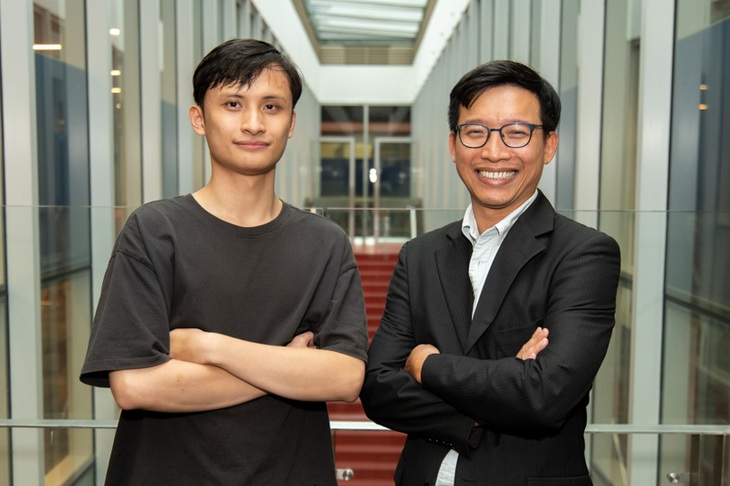
Associate Professor Dr. Dinh Ngoc Minh is the direct instructor of student Phung Minh Tuan - author of the project to decode doctors' handwriting using AI technology - Photo: RMIT
Therefore, leading universities such as RMIT Vietnam have been strongly shifting from a purely theoretical training model to a practical approach and towards comprehensive competencies to equip students with the necessary skills to help them stand firm in the future.
In addition to providing specialized knowledge, the school emphasizes the development of critical thinking, problem-solving skills, creativity and entrepreneurial spirit - factors that people need to "collaborate" with AI. Therefore, right from the first year, RMIT students have been trained in these skills, not only in the classroom but also through many integrated practical learning activities.
Associate Professor Dr. Dinh Ngoc Minh said that RMIT University Vietnam actively integrates new technology into its curriculum, such as using AI as a tool to support learning, teaching and assessment.
The school encourages students not to shy away from technology, but to understand how AI works, its limitations, and find ways to use AI as a "teammate" in both their studies and work.
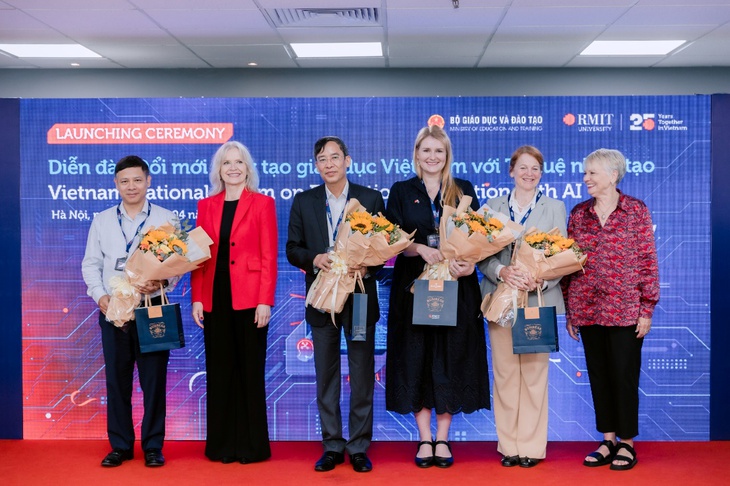
RMIT Vietnam organized the launching ceremony of the Vietnam Education Innovation Forum with Artificial Intelligence 2025 with the participation of the Ministry of Education and Training, the Australian Embassy, UNICEF Vietnam, Departments of Education and Training... Photo: RMIT
Not only stopping at the lecture hall, RMIT's training model also connects students with the labor market through career counseling programs, seminars with experts, startup competitions and a global alumni network.
Students are encouraged to develop adaptability and a lifelong learning mindset with a willingness to take on challenges – key factors that help them not fall behind as technology changes every day.
Students are not only encouraged to study one major, but are also encouraged to cross-study and open learning, to adapt to diverse roles in the future.
Adjust your career strategy
In reality, choosing a major now no longer depends on "hot majors" or "top schools" but needs to be based on understanding yourself, understanding your career and preparing a long-term strategy. This strategy needs to start with choosing a suitable learning environment, a place that helps students discover their potential as well as be equipped with the necessary skills to always be ready to adapt to the times.
According to Ms. Ngo Thi Ngoc Lan, it is important to have the ability to adapt and be resilient: "Future success depends on being ready to learn from mistakes, change direction when necessary, and constantly develop yourself."
The AI labor market is volatile but also full of opportunities. The worries are real, but the future does not lie in fear, but in proper preparation. Parents also need to accompany their children in self-discovery, skill development and career orientation based on abilities - interests - life values, instead of forcing their children to follow "safe" or trendy industries.
Source: https://tuoitre.vn/huong-nghiep-trong-ky-nguyen-ai-so-hai-hay-ky-vong-20250516105949705.htm



![[Photo] 60th Anniversary of the Founding of the Vietnam Association of Photographic Artists](/_next/image?url=https%3A%2F%2Fvphoto.vietnam.vn%2Fthumb%2F1200x675%2Fvietnam%2Fresource%2FIMAGE%2F2025%2F12%2F05%2F1764935864512_a1-bnd-0841-9740-jpg.webp&w=3840&q=75)
![[Photo] National Assembly Chairman Tran Thanh Man attends the VinFuture 2025 Award Ceremony](/_next/image?url=https%3A%2F%2Fvphoto.vietnam.vn%2Fthumb%2F1200x675%2Fvietnam%2Fresource%2FIMAGE%2F2025%2F12%2F05%2F1764951162416_2628509768338816493-6995-jpg.webp&w=3840&q=75)



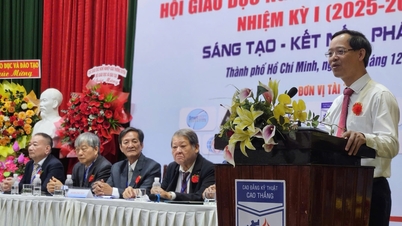

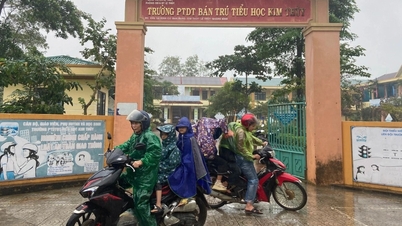

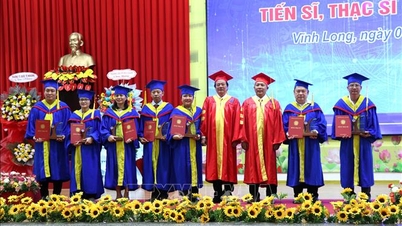


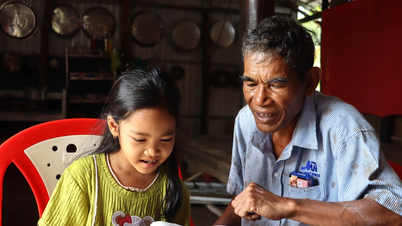

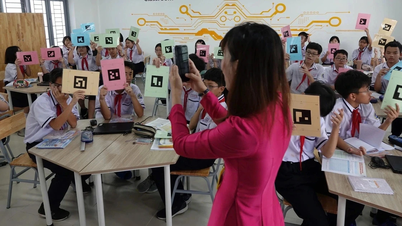




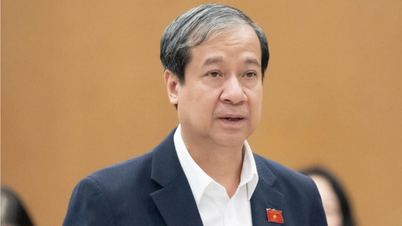

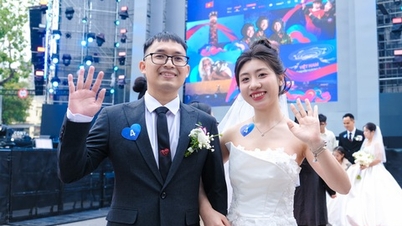


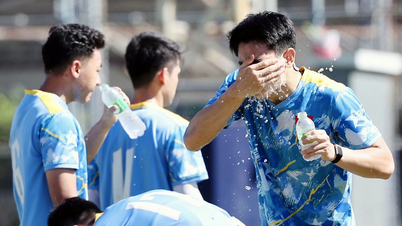
















































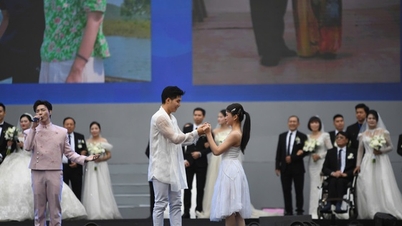





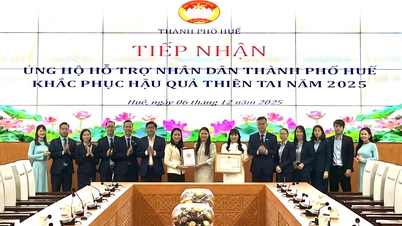





















Comment (0)